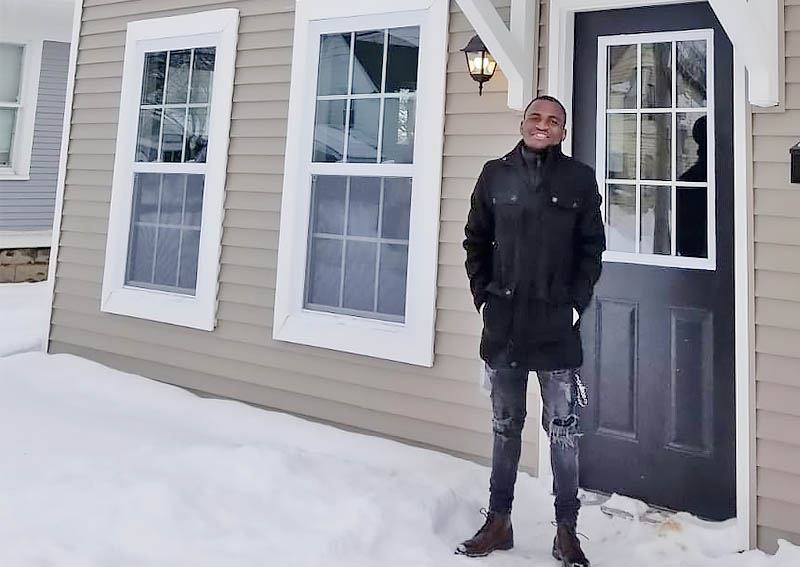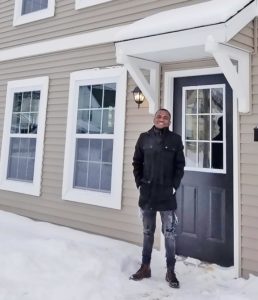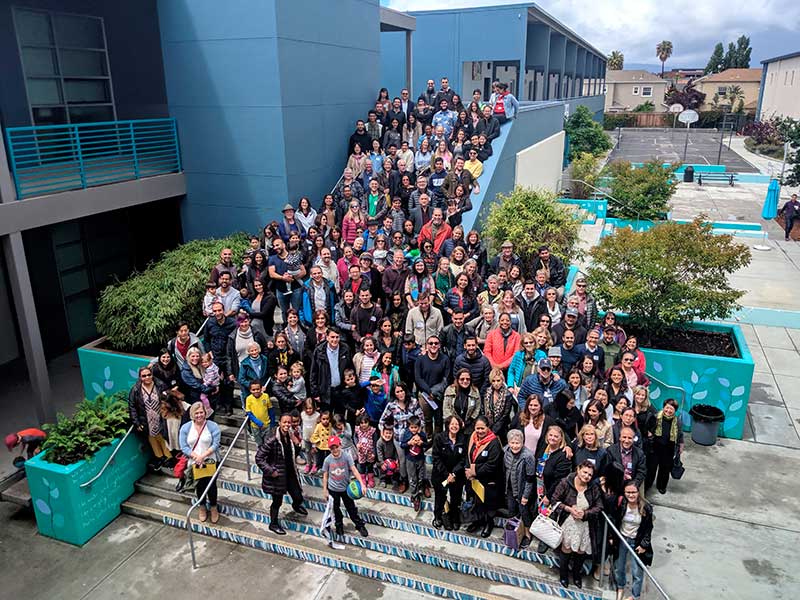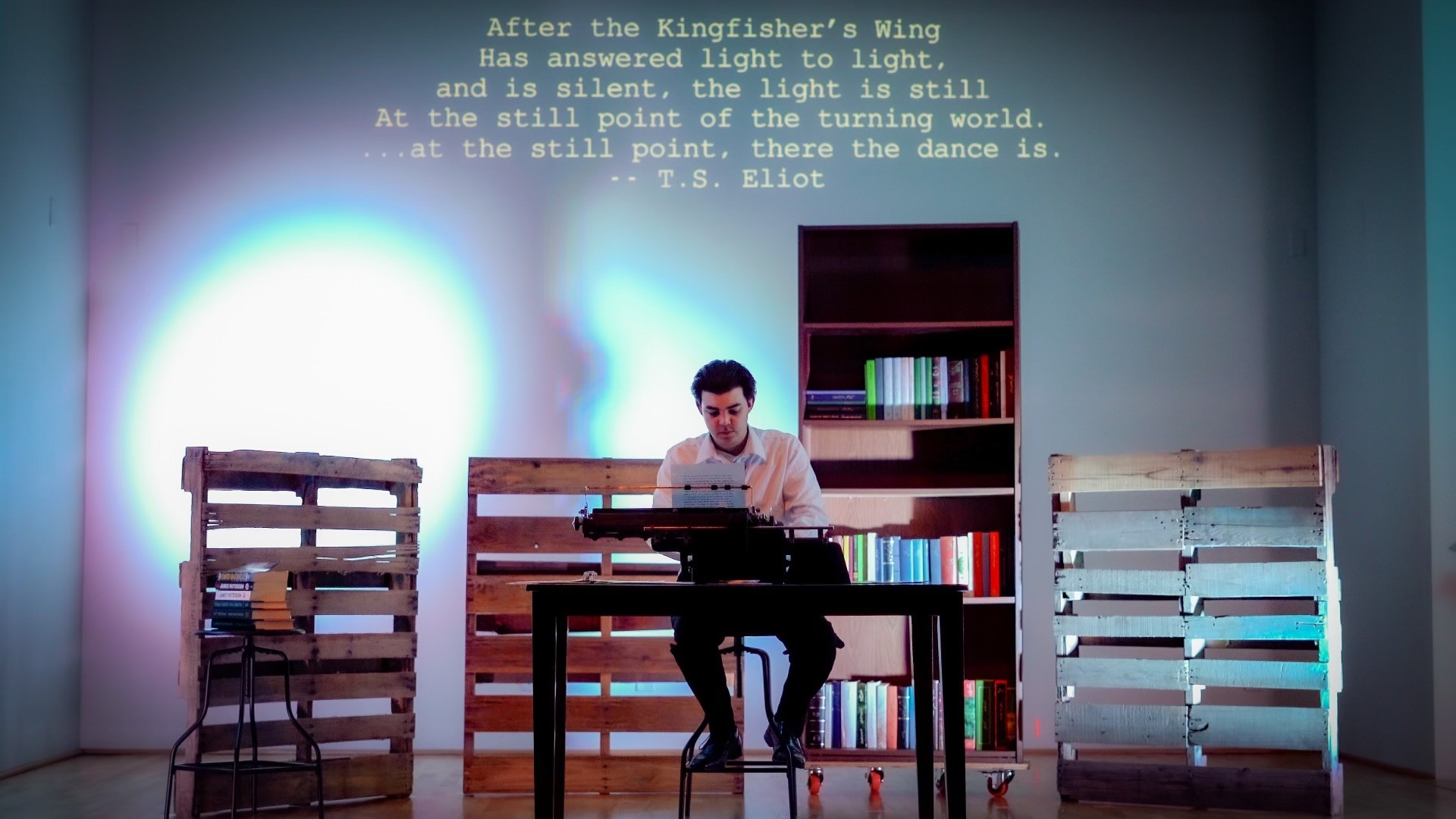
Neighbors become cherished friends in western Michigan

By Layli Miron
In western Michigan, two very different locales just 30 miles apart illustrate the possibilities of outreach to neighbors. Grand Rapids is a bustling city with a million people in its metropolitan area. To the west, Grand Haven is a picturesque town on the shore of Lake Michigan. In both these “grand” places, Baha’is are working to enrich the spiritual lives of their neighborhoods.
Grand Rapids: African refugees embrace spiritual education
John and Anisa Everett have been seeking opportunities to invite their Grand Rapids neighbors into a community-building process since 2016. Yet in the neighborhoods where they first settled, their outreach didn’t meet with much receptivity.
In 2017, the Everetts were contemplating another move. This time, they were eyeing the city’s southeast, populated by Congolese refugees as well as African and Latinx Americans. The couple got involved in a couple of Holy Day gatherings in the southeastern neighborhood and found joy in the spiritual enthusiasm there. “That was when we knew,” reflects John.
Since the Everetts resettled into that neighborhood in 2018, they have reached out to their new neighbors to start and help maintain core activities. Most of the enthusiasm they encounter comes from Congolese families. “I think doing activities based on spiritual principles, to glorify God, really resonates,” John says. “In the refugee camps [before they moved to the United States], there was nothing to do, so they’d be praying and fasting and going to church all the time.”
Anisa adds, “With that cultural root in spirituality, it is difficult when they move to the U.S. — people don’t go to church every day, kids don’t talk about God in school. The parents develop concerns that the kids aren’t connecting with God and spirituality, and they long for it.”
Baha’i programs founded on the Ruhi Institute’s materials — children’s classes, junior youth groups and study circles — help address that spiritual hunger. “It was like wildfire!” Anisa says. “Just this past week, we invited one child to children’s classes, then got calls from 10 others, and even from youth who want to participate.”
John adds, “The main way people really came into the institute was through friends of friends. One family would introduce us to 25 people, then it would become 100.”

Some of these participants are now leading the activities, like Justin Duhimbaze, who coordinates the junior youth program, doing everything from planning camps to conducting outreach. This leadership within the refugee population, Anisa says, “has been the biggest push forward that we’ve had, the biggest milestone. It enables other youth to look to them for an example. And they have the language advantage.”
Another step forward has been the establishment of the Institute House, a facility rented for neighborhood activities by the Regional Baha’i Council of the Midwestern States. So far, it has hosted junior youth camps, Holy Day celebrations and numerous other activities.
John says that he hopes as many people as possible can experience what it’s like to interact with people who are really engaged with Baha’i community building. “We really love the community that’s being created,” he says.
Grand Haven: Baha’i resident maintains neighborhood friendships
The placid lakeshore scenery of Grand Haven may seem a far cry from Grand Rapids’ busy streets, but here too are opportunities to share the teachings of Baha’u’llah. Shahnaz Damasio is one of few Baha’is in Grand Haven, where she has lived for 25 years. She readily talks about her faith in her conversations with her neighbors, many of whom are Christian.
“I’m very close to my neighbors, and they all know I’m Baha’i,” says Damasio. “I talk to two of them on a regular basis. They’re very active in their church community, but they’re also very open to learning about the station of Christ in the Baha’i Faith. We say a prayer every two months together.”
Though COVID-19 has made it difficult to gather, Damasio has maintained this devotional practice. “Before the pandemic, we’d walk down to the nearby lake and pray there. Now, we call each other on the phone, and say prayers and words of affirmation,” she states. Other neighbors have expressed interest in joining the devotions.
Damasio lived through the Islamic Revolution in Iran, her migration to the United States, and the passing of her husband of many years. The tests she has faced have not quenched her love for humanity — far from it. “The best thing is to be friends with my neighbors,” she says. “Being with that person is like the sun in your heart. You’re sharing the sun with that person: the love of Baha’u’llah, the faith, can radiate to the other person.”
Reflection and acts of service merge in Damasio’s approach to nurturing these friendships. Her neighbors “know I’ll make dinner, bring gifts, even clean the house—whatever you need, I will do!” she says, adding, “Day by day, I bring myself to a reckoning and I try to come up with a better idea for the next day, somehow to have a conversation with my neighbors, so they know, when they see me, that I’m a Baha’i.”





